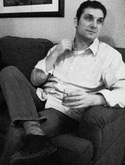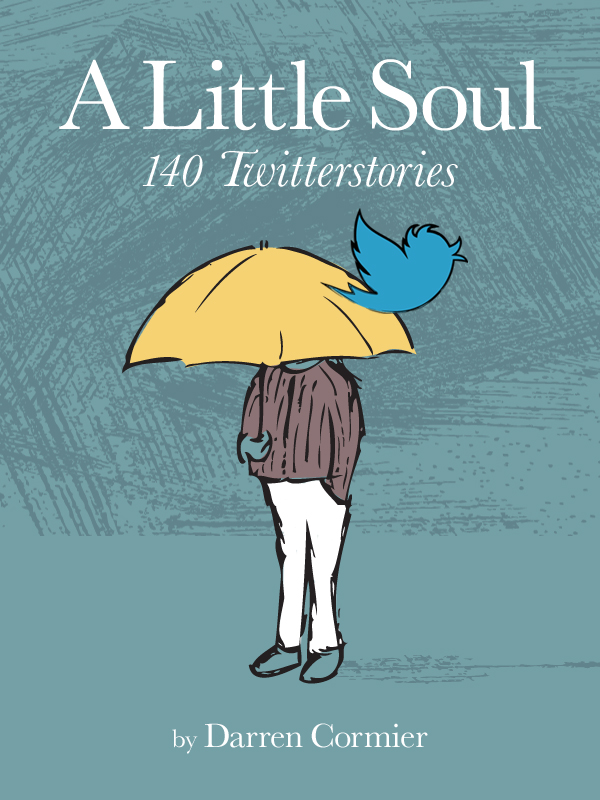At the end of the post I mentioned I had written for grad school a paper on Foster Wallace's essay "The Nature of the Fun," where he discussed why he wrote. I have attached my paper below.
Enjoy.
In Will Blythe’s collection of essays Why I Write, Blythe asked many famous and not-so-famous, or not-so-famous at the time but now very famous, writers and novelists to expound on their reasons for writing, why they hole up in rooms and attics and offices, why they shun people and society like well-read, non-contagious lepers, why, even if they are morning people, they treat themselves like they are vampires, keeping themselves locked in a room or house as if contact with the sun might disintegrate them and turn them into a gossamer skein of skin, bone, and lots and lots of caffeine. Most of those essayists told about writing to find out the truth about themselves and about the world. Tom Chiarella wrote about all the things he couldn’t do—play basketball or cook or fix machinery or build a bookcase or balance his checkbook—and, when left at the bottom of that list, writing was nowhere to be seen: he wrote because it was something he could do, something he was good at. Same with Mark Jacobson, it was something he was good at. Thom Jones writes because he wants to be Wile E. Coyote and catch that fucking roadrunner just once (and when he’s done catching that roadrunner, he probably wants to smoke up or drink with Wile E. Coyote). And Stephen Wright has been staying at the Overlook Hotel for far too long. He needs to go stay at the Ramada or Best Western: more people stay there, he’d have more human interaction.
But of all the essays that resonated with me, the one that resonates with me easily the most, especially at the point I am at right now with my novella, was David Foster Wallace’s “The Nature of the Fun”. A book- (or story) in-progress is, as Wallace wrote, “a kind of hideously damaged infant that follows the writer around, forever crawling after the writer (dragging itself across the floors of restaurants where the writer’s trying to eat, appearing at the foot of the bed first thing in the morning, etc.), hideously defective, hydrocephalic and noseless and flipper-armed and incontinent and retarded and dribbling cerebro-spinal fluid out of its mouth as it mewls and blurbles and cries out to the writer, wanting love, wanting the very thing its hideousness guarantees it’ll get: the writer’s complete attention.”
At least Foster Wallace’s creation has a mouth right now, has arms, albeit flipper arms, but arms nonetheless. His child spits and leaks cerebro-spinal fluid because it has a mouth, it can drag itself across the floor and make noise, because it has arms and flippers. My novella, as it stands right now, has maybe an ear, or an eye, and I think there are the beginning formations of a toe or two, and every day I wake up (or after the Mets game is over) I look down at my feet or across the apartment into the dining room, or behind my laptop, and peeking over the top is this amorphous blob of pulsating cells and discolored organs. But, after I finally shake it off my leg, I start molding my lovable blob and by the end of the night I have created a face, or an arm, and the very next day I can recreate that face, and maybe form a nail for that toe that I made the night before, and I should move on to creating a face, a skeleton, but oh what an exquisite toe it is, so instead of creating a face, some legs for it to stand on, a skeletal structure in which to add adornments and decorations later, I’ll paint that toenail instead. But I must keep working, because no one wants to create just a toe.
A farmer came up to me once and said, “Here! Do you see that massive stretch of land over there?”
“The one with the giant mound of dirt that doesn’t stop as far as the eye can see?” I said. “The one with the enormous house on the hill?”
“That’s the one,” the farmer said. “And it’s yours.” He gave me a giant ring of keys and I felt like a janitor, flipping them around in my hand, one key for the tractor, another for the hay silo, yet another for the house and so on and so forth. The next day I went out and planted a flower, out of all that fertile soil and machinery and animals and time and money and land I had been given for no reason other than this farmer wanted to give me this extremely valuable gift and I just happened to walk across his determined path that afternoon, I planted a flower. After a couple of weeks a purple bulb sprouted and unfolded its pretty little fingers to the sky. But I did nothing else with the thousand acres of land, content to have grown just a flower that, after a few weeks, had its leaves fade in color and wilt and wither like human skin, until the petals fell off into the soil I had been given. And I did nothing else with the land, I just watched it grow fallow and parched and cracked, and the tractor and backhoe and rakes rusted and flaked, the handles on the shovels splintered and rotted away, filled with termites and wood fungus.
Obviously that’s an invented scenario, and probably an even more tortured metaphor, but you get the point. If someone gives you such land, such tools, such machinery, why would you stop at having just created a flower, one small piece of beauty in a massive all-encompassing dirt heap possibility? Why would you not want to create more beauty? In the story that follows me around the house, that bites at my ankle as I fill my coffee mug, that hovers over my head like a monolithic shadow as I lie down on the couch to read a book, that stands in front of me as I try to watch TV, I have created an ear, a perfectly formed ear, and then a toe, and then an exquisite toenail, and I spent about a day or two polishing the toenail, a palimpsest of a digit, erased, recreated, erased, recreated, instead of creating more body parts, but tomorrow (or when I’m finished writing this essay) I’m going to jump back in and create more of a person, try to hone my child into something presentable, something beautiful, something that would make Anne Geddes call and offer me money so that she can take my no longer hideously malformed infant and dress it into a pumpkin. And just so I can turn her disturbing, treacle-filled brain down, I will continue to mold, shape, trim, and stretch my quivering gelatinous goop of a story into something that I wouldn’t want to keep locked in the basement dungeon out of fear that it might eat the neighbors, but into something that I would want to introduce to people and show off to the world.
And why do we keep doing this, continue to write, why do I keep doing this, why did David Foster Wallace keep doing it? Because, as he said, “it’s still all a lot of fun.”
 RSS Feed
RSS Feed

